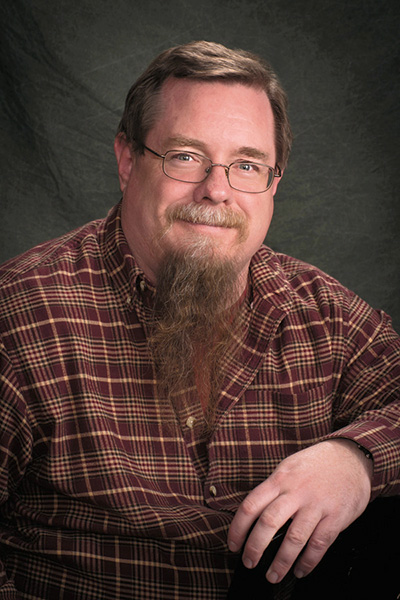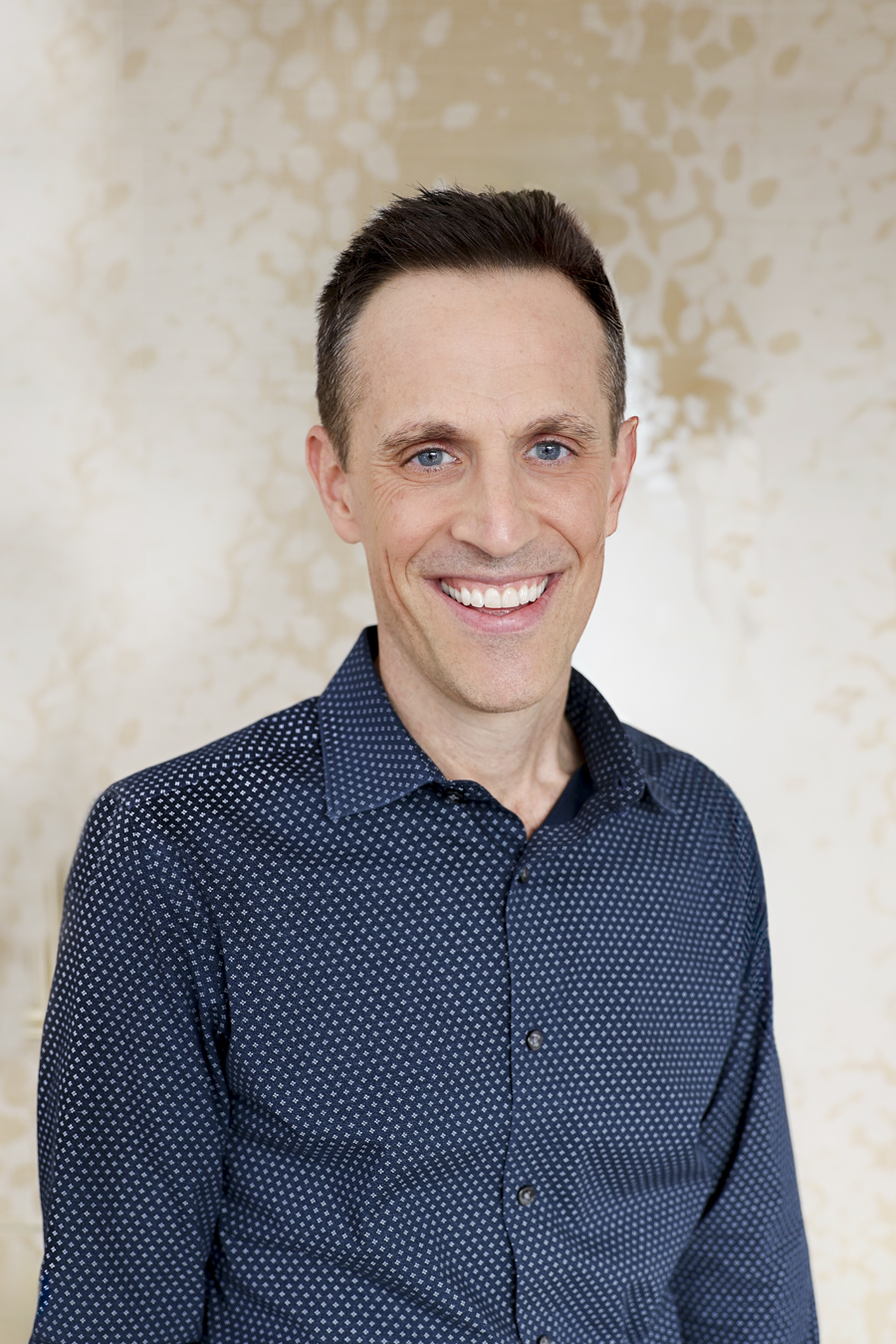Masons Address Mental Health Through Education, Support & Treatment
May is Mental Health Awareness Month, a time to raise awareness about the impact mental health can have on a person’s overall wellbeing. It’s also a time to share resources that may benefit those struggling with mental health disorders, like depression and anxiety.
In the U.S. alone, about one in five adults experience a mental health condition each year, yet nearly 55% do not receive treatment due to stigma or lack of access. There are also rising rates of mental health issues in children and adolescents, due to the overuse of digital technology.
While some Pennsylvania Freemasons specialize in mental health fields, from social workers to psychologists, others volunteer to provide much-needed support. In this issue, they share their personal stories, expertise and advice.
The Masonic Youth Foundation hosts a variety of conferences to train and educate the youth of Pennsylvania, as well as workshops for educators, substance abuse counselors and behavioral health staff working on the front lines with kids.
The Masonic Youth Foundation presents these workshops on a multitude of topics, from “Creating Emotional Well-being in the Digital World” to “Bullying, Trauma and the Brain.”
“The foundation is really focused on educating the adults and giving them lots of resources,” Deborah “Deb” McCoy, of Educational Development Services, LLC, said. “We hear consistently from participants that’s what is valuable to them.”
The workshops are free and virtual, which allows a broader range of people to attend, like teachers who don’t have time to get away from school, Deb said.
“We now know that one in eight individuals under age 18 have a genuine anxiety disorder, and 80% don’t get treatment due to a lack of resources or funding,” Deb said. “It’s important that staff who interact with students on a regular basis are as educated as possible.”
Today’s youth spend a significant amount of time in the digital world, and at increasingly younger ages, Deb said. There has been a decline in in-person interactions with peers, alongside a sharp rise in mental health issues. Many of Deb’s workshops focus on the impact of social media on physical and mental health.
“Kids’ involvement with social media is happening at younger ages, creating significant mental health issues because they’re entering into this space where their brains aren’t fully developed,” she said. “Their beliefs, attitudes and health are impacted by that involvement.”
Kids who spend more than nine hours a week on social media experience less happiness and satisfaction. Poor mental health can also lead to physical symptoms, which is why the American Academy of Pediatrics now recommends discussing social media use during annual physicals, Deb said.
When kids are stressed and anxious from social media, they can experience gastrointestinal issues, headaches, disrupted sleep patterns and a weakened immune system.
Cyberbullying, sexual harassment, substance abuse and online gaming are other important issues affecting young people. Deb leads workshops focused on “friends and substance abuse,” as well as “marijuana use and vaping,” which has increased with the legalization of medical marijuana in many states. Suicide is now the second leading cause of death among adolescents.
“I think we have to start really early with kids setting boundaries with social media,” Deb said, such as waiting until eighth grade before giving their child a device. “There are apps parents can use to monitor their kids’ social media use,” she added
Deb has been working with the Masonic Youth Foundation for decades. Prior to that, she worked for the Department of Education in their Safe Schools Division. She said it’s gratifying to be able to provide support services for those who need it.
“We are the providers of education and support, and I think there’s a real need for that,” she said. “I really love what I do.”
When Brother Tim Curran, Shiloh-MacCalla Lodge No. 558, Souderton, returned home after eight years as an active-duty Marine (with two deployments to Iraq and Kuwait), he suffered from Post Traumatic Stress Disorder (PTSD) and was feeling lost. He joined Freemasonry six months before leaving the military. Originally a member of Tacony Lodge No. 600 in Philadelphia, Tim switched to his current lodge when he moved to Upper Bucks County.
One day when Tim was home, a fellow Mason took him out on a deer hunt, and he felt much better after being out in nature. He started researching what outdoor recreation could do for PTSD sufferers.
Tim founded the Pennsylvania Masons Outdoors Club in 2019, which today is 1,000 members strong. Besides the opportunity to be around other Masons, Tim decided he really wanted to focus on veterans who needed help.
In 2021, Tim got in touch with God’s Outdoor Angels Foundation, a nonprofit organization that provides an outdoor experience for chronically/seriously ill children or disabled veterans through fishing, hunting and other outdoor excursions. Today, as a leader of the organization, he has taken over 120 veterans on outdoor adventures, where they benefit from the peace and beauty of the outdoors.
“It has been proven that time in nature reduces stress for people with PTSD, anxiety and depression, more so for veterans,” Tim said. “They are not worried about everyday stress or the demons from war coming back. They are focused on creation and what’s in front of them. It’s a calming environment. I’m not a therapist or a social worker, but I do believe in the power of outdoor recreation therapy, and I’ve seen firsthand what it has done for me and others.”
The excursions are an opportunity for veterans to connect over shared struggles from transitioning back to civilian life.
“In the military, everything is strict and structured,” he said. “When you get back to civilian life, it’s hard finding direction sometimes. When we take vets out, they take a step back and calm their minds.”
The organization provides up to 12 excursions a year, including three fishing trips and three upland bird hunts. Most of the participation is by word of mouth and funded through donations, Tim said. If the local VFW or American Legion identify someone who might be struggling or is not responding to traditional PTSD therapy, they often send them to Tim, because he can relate to what they’re going through.
Tim graduated high school in 2005 and was shipped off to boot camp the same day. A fourth-generation military man, he knew what was expected of him. He was released from the Marines unexpectedly in 2013 due to neck, back and spinal cord injuries. Although he grew up in Philadelphia, today Tim enjoys living surrounded by nature in Montgomery County.
“I live on three acres in the woods, with 60 acres of land behind my house,” he said. “I do something out in nature every day, whether it be fishing, hiking or hunting.”
While happily married with two young children, Tim still struggles occasionally with his PTSD.
He used to avoid large crowds and suffered from panic attacks.
“Now that I’m able to take myself out of situations and be present in the outdoors, it has helped me cope better. I’m not completely healed, but I know what my triggers are. I no longer want to be in four walls and isolating. I want to be outside experiencing life.”
For more information on God’s Outdoor Angels Foundation, visit Godsoutdoorangels.com. You can also visit the PA Masons Outdoors Facebook Group.

A Past Master of Thomson Lodge No. 340, Paoli, Brother Brendan Hickey has built quite a name for himself. He is a longtime school psychologist who evaluates kids for educational disabilities. He’s a disaster/mental health volunteer with several organizations, including the Red Cross. He is a national board-certified counselor in both Pennsylvania and Delaware, where he served with the Delaware Medical Reserve Corp. He is also an accredited school suicide prevention specialist.
Brendan is also a Masonic scholar, a Hauts Grades Academy Scholar through the Scottish Rite and a published Masonic author.
Brendan uses what he calls “Special Forces” breathing as a stress management tool for the youth he treats in middle school.
“Breathing is the only part of the autonomic nervous system that you can control,” he said. “If you slow your breathing down, it will slow your heart rate, lower blood pressure, etc. It is used by athletes, special forces and military police.”
Another coping strategy involves “HALT” (hungry, angry, lonely, tired). When you see yourself returning to a bad habit or feeling stressed, you are reminded to pay attention to your body, take stock of how you’re feeling and be more aware of what you’re doing.
“It’s important to recognize those things and take a step back,” he said.
Brendan has a PhD in educational psychology with a concentration in child and adolescent psychology and a specialty in working memory, including the connection between working memory and stress.
“It’s normal to forget things when you’re stressed out, and it’s normal to worry about forgetting things, which adds to the stress,” he said. “When I teach people new things, I tell them this, and that it’s OK for them to ask me whatever they want, as many times as they want. It’s nothing to worry about.”
A Suicidologist, Brendan said middle-aged men have a higher suicide rate than women, and a much higher rate than teenagers.
“People think that suicide is just a teenage problem, but it’s not. Of course, we work to prevent teen suicide, but the fact is that the most common age ranges for Masons are also the most common age ranges for suicide.”
Job or other economic losses or the end of marriages are the most common events before suicide, Brendan said, The current understanding is in terms of a “suicidal crisis,” an intense but temporary period of intense hopelessness. Someone can seem to be doing OK, and really be doing OK, until they hit a suicide crisis. That’s when the easy access to lethal means, like guns or drugs, combines for a bad outcome.
Brendan loves to use what he knows from his work outside of Freemasonry to benefit his brothers. He has been able to support some Masons who are struggling. He recommends the QPR – Question, Persuade, Refer Gatekeeper training – or the Talk Saves Lives training from the American Foundation for Suicide Prevention.
The national Suicide and Crisis Hotline is 988. You can text, call or chat from anywhere, 24/7, for yourself or someone else.
“All of these tools are useful ways that a normal person, not a psychologist, can help someone through a hard and scary time,” Brendan said.
Even the geriatric population is not immune to mental health complications such as anxiety, depression and at times, suicidal thoughts.
Struggles tend to go unnoticed in the senior population because there is more of a reluctance among older adults to ask for help or talk to a psychologist, said Jess A. Lee, Psy.D., Clinical Psychologist for 17 years at Masonic Village at Elizabethtown.
“Seeing a psychologist in their generation was something they didn’t do,” he said. “They either didn’t talk about their feelings, or they saw a pastor. In the past 10 years, there is less of a stigma. They are a lot more willing to open up with me, or their families are more likely to convince them to see me.”

Usually, residents are referred by a primary physician, social worker or the family. The most common struggles are adjustment-related difficulties, i.e. someone moving from their home to personal care or health care, or from retirement living to a higher level of care.
“They are struggling because they miss where they were before,” Jess said. “I’m consulted a lot for depression, ranging from missing their family, age-related changes, death of a spouse and the reduced ability to be independent.”
Depression and anxiety, particularly health-related anxiety, are the next most common reasons residents will see him. A decline in health or an inability to walk or do the things they like to do, all contribute to a person’s emotional well-being.
Sometimes, a family member will notice changes in their loved one’s behavior and ask Jess to evaluate for mild impairment or potential dementia/Alzheimer’s disease status, usually in conjunction with a physician.
“I also see residents in the memory care area for behaviors staff may have difficulty managing,” he said.
If a resident is in crisis or having thoughts of suicide or death, Jess is called for an immediate evaluation.
“In all my time here, I’ve developed relationships with residents,” he said. “Some residents I’ve seen for close to 10 years. I love working with the elderly because they always have wonderful stories about their lives. I find there is a lot of wisdom there. It keeps me humble – when you get older, a lot of things people focus on don’t matter anymore. I try to apply that to myself.”


